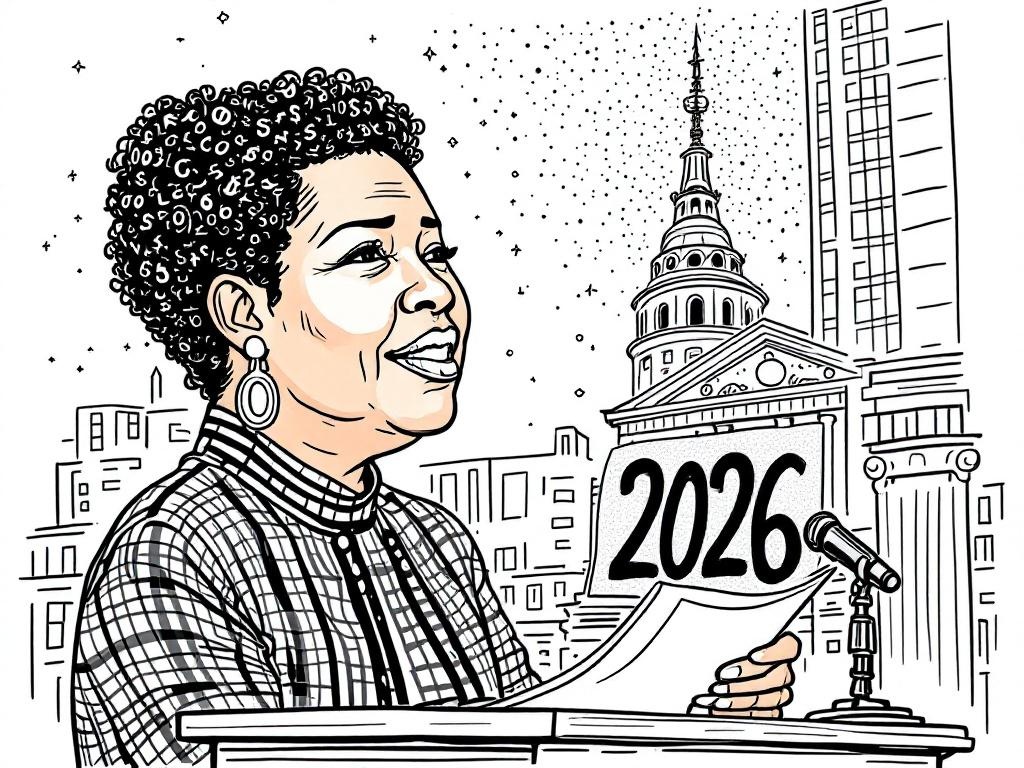Mayor Bowser's 2026 Budget Proposal Prioritizes Growth Amid Social Service Cuts

Washington, D.C., Friday, 30 May 2025.
Mayor Muriel Bowser unveils a growth-focused 2026 budget, reallocating resources toward economic development while reducing funding for social programs, including cuts to Medicaid affecting 25,000 residents.
Economic Revitalization at the Heart of the Budget
Mayor Muriel Bowser’s 2026 budget proposal, introduced on May 27, 2025, under the banner ‘Grow D.C.,’ emphasizes significant investments in economic growth and infrastructure to counteract a projected $1 billion revenue loss. This includes a $1 billion plan for a new Washington Commanders stadium and entertainment district at the RFK site, as well as $515 million allocated for the renovation of the Capital One Arena [1][2][3]. These initiatives are intended to galvanize the district’s economy by fostering a conducive environment for business activities and job creation [3].
Shifts in Social Services and Healthcare
A substantial aspect of the proposal includes stringent cuts to social services, notably the scaling back of Medicaid which affects approximately 25,000 residents. This move is part of a broader strategy to address the budget deficit without increasing taxes. Furthermore, the budget seeks to phase out the D.C streetcar by 2029, preparing to introduce a ‘next generation’ streetcar system that eschews traditional fixed tracks, signifying a shift in transportation priorities [1][4][5]. These adjustments reflect the Bowser administration’s intent to divert funds towards areas with potential for economic returns while streamlining government expenditure [4].
Impact on Rental Assistance and Education
The proposed budget plan also includes significant reductions in emergency rental assistance, alongside a halt to cost-of-living adjustments for certain welfare programs. This is aligned with the broader goal of reducing government dependency and encouraging economic self-sufficiency among residents. Moreover, the budget allocates $270 million for teacher pay raises, with additional funds directed towards public school improvements—an investment deemed essential for sustaining long-term economic development by fostering a skilled workforce [5][6].
Council and Public Reactions
The D.C. Council and various advocacy groups have reacted critically to the proposed budget, labeling it as disproportionately prioritizing corporate incentives over community welfare. The D.C. Fiscal Policy Institute, in particular, condemned the budget for exacerbating wealth inequality and neglecting the needs of low-income families. As the council begins budget hearings on June 5, 2025, these debates are expected to intensify, highlighting the challenges of balancing fiscal responsibility with social equity [3][7][8].
Sources
- 51st.news
- wtop.com
- www.nbcwashington.com
- www.washingtonpost.com
- www.nytimes.com
- wtop.com
- www.wusa9.com
- www.washingtonpost.com